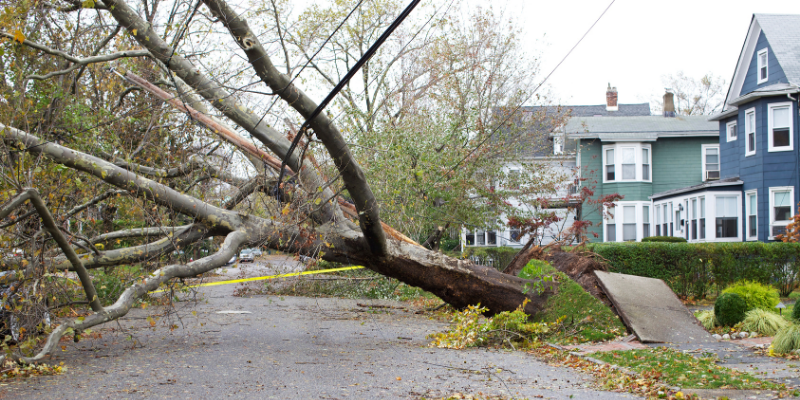
Understanding Storm Damage and Its Impact on Property Value
Understanding storm damage and its effect on property value is critical when selling a storm-damaged home in Illinois. Storms can produce a wide range of damage, including roof leaks, broken windows, structural difficulties, and water damage, which can substantially impact a property’s market value.
Prospective purchasers are often apprehensive of homes with such damage due to the possibility of high repair costs and hassles. As a result, sellers must conduct professional inspections to estimate the damage amount precisely.
Sellers who thoroughly understand how various types of storm damage might decrease property values can make informed judgments about necessary repairs or adjustments to the asking price. Understanding local real estate market patterns relating to storm-damaged buildings can be especially useful in Illinois, where weather conditions can be unpredictable and severe storms are prevalent.
Sellers should be willing to report all known damages openly to maintain buyer trust and comply with state rules. By skillfully resolving these problems, sellers can manage the complications of selling a storm-damaged home while increasing their property’s appeal to potential purchasers.
If you’d rather skip the stress of repairs and paperwork, A Team Real Estate Solutions buys homes for cash in Illinois, even if storms have damaged them. This makes the selling process fast, hassle-free, and straightforward.
Assessing the Extent of Storm Damage on Your House
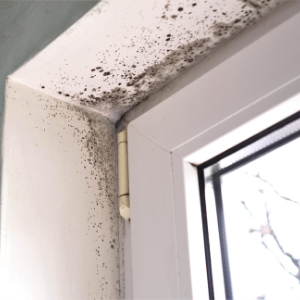
When it comes to successfully selling a storm-damaged house in Illinois, precisely estimating the amount of the damage is critical. Begin by completing a comprehensive check of your home’s exterior and interior to discover common problems like roof damage, broken windows, or weakened siding.
Pay close attention to indicators of water entry, which can cause mold development and structural problems if not handled quickly. Document all obvious damages with photographs and thorough notes, as this will be required when collecting repair quotes and alerting potential purchasers about the state of your home.
Consider contacting a professional inspector or contractor specializing in Illinois storm damage assessment for a thorough evaluation. Understanding the entire extent of the damage enables you to make informed decisions about necessary repairs or pricing modifications when selling your home.
An honest assessment helps set realistic expectations and fosters trust with prospective purchasers by exposing any known difficulties up front.
Navigating Insurance Claims for Storm Damage Repair
Navigating insurance claims for storm damage repairs is crucial when selling a storm-damaged home in Illinois. Understanding the nuances of your homeowner’s insurance policy can significantly impact your ability to sell the property successfully.
Begin by properly studying your insurance to identify coverage terms that will tell you what repairs qualify for reimbursement. Document all storm-related damage immediately with photographs and comprehensive notes; this proof will be critical when filing your claim.
Contact your insurance carrier as soon as possible to begin the claims process, providing detailed information on the extent of the damage. Collaborating with a skilled public adjuster can also be helpful, as they can negotiate fair settlements on your behalf.
Once you’ve acquired funding for necessary repairs, prioritize addressing serious structural flaws or any issues that could turn off potential buyers, such as roof leaks or foundation fractures. Keeping precise records of all communications and repair bills will speed up the claims process and persuade prospective purchasers that the home has been thoroughly restored following storm damage.
Legal Aspects of Selling Damaged Property in Illinois
Understanding the legal aspects of selling a storm-damaged home in Illinois is critical to a successful sale. Illinois law requires sellers to report any known substantial flaws in their property, including storm damage.
You must give potential buyers a complete disclosure statement describing the damage amount and any repairs undertaken. Failure to disclose such information can result in legal challenges or the cancellation of the deal.
Sellers should also know local zoning rules and construction codes, which may impact the necessary modifications or repairs before selling. It is best to speak with a real estate attorney versed in Illinois property laws to ensure compliance and prevent potential liabilities.
Understanding these legal requirements helps to smooth the sale process and develop trust with prospective purchasers, ultimately improving the marketability of your storm-damaged home.
Disclosing Storm Damage: What Sellers Need to Know Legally
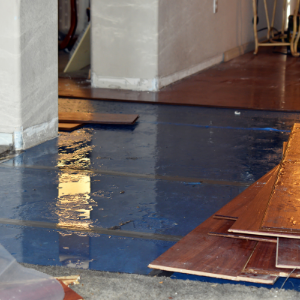
Knowing the legal requirements for revealing damage when selling a storm-damaged home in Illinois is critical. Illinois law requires house sellers to give potential buyers a Residential Real Property Disclosure Report, which should contain any known material deficiencies, such as storm-related issues like roof leaks, foundation difficulties, or water damage.
Sellers must be aware of the amount of the storm damage and any repairs undertaken to comply with state requirements and avoid future legal issues. Even if repairs have been done, identifying previous storm damage is critical for helping purchasers make informed judgments.
Providing accurate information can result in legal implications and potentially sabotage the sale. Sellers should contact a real estate attorney or professional familiar with Illinois property laws to ensure that all disclosures are documented and disclosed throughout the transaction.
Renovation Vs. As-is Sale: Deciding the Best Approach
When determining whether to renovate or sell a storm-damaged property in Illinois, homeowners must consider several essential variables. Renovating a property can boost its market value and appeal, attracting more potential buyers who are willing to pay a premium for move-in-ready homes.
However, repairs can be time-consuming and expensive, especially if severe structural damage exists or expert contractors are required. On the other hand, selling a house as-is is a faster choice because it avoids repair costs and allows owners to dispose of their assets rapidly.
This strategy is popular among investors and cash purchasers looking for properties to renovate themselves. The decision is mainly determined by the homeowner’s financial status, timing, and willingness to handle improvements.
Understanding current real estate trends in Illinois and speaking with local real estate specialists may help you determine which technique would offer the most return on investment, given the property’s specific condition and market demands.
Getting Your Illinois Home Ready for Sale After a Storm
Thorough preparation is required to sell a storm-damaged house in Illinois successfully. Begin by determining the complete amount of your home’s storm damage, focusing on apparent and hidden issues such as roof leaks, shattered windows, flooding, and structural damage.
Hiring a professional inspector may provide an accurate inspection, ensuring no issues go undetected. Next, required repairs should be made to improve the property’s attractiveness; critical concerns such as roofing and plumbing must be prioritized to fulfill safety standards and increase marketability.
Cleaning up waste and landscaping the yard will dramatically improve curb appeal, providing a good first impression on potential buyers. It is also beneficial to seek estimates for outstanding repairs; openly presenting this information can develop trust with prospective purchasers who may require reassurance about future costs.
Regardless of previous storm damage, staging your home with clean interiors, neutral colors, and strategic lighting will help showcase its most appealing qualities. Consider working with an experienced real estate professional who has sold storm-damaged houses in Illinois; their knowledge can help you through pricing methods and marketing tactics specialized to this situation.
How to Price a Storm-damaged House Competitively
When valuing a storm-damaged home in Illinois, it is critical to thoroughly evaluate the property’s condition and the amount of the damage. Begin by speaking with a competent real estate appraiser who understands the local market dynamics and can provide an accurate estimate while accounting for the impact of storm-related concerns.
Look at comparable properties previously sold in your region, giving special attention to those with similar damage. Repair costs must be considered when setting your asking price; receiving estimates from competent contractors will help present a realistic picture of prospective fees that purchasers may incur.
Consider current market trends and buyer demand in Illinois, since these can impact your price strategy. Pricing too high may discourage potential customers, whilst pricing too low may result in financial loss.
Being open about the damage and publicizing any rapid repairs or upgrades you’ve done can also build trust with prospective buyers, resulting in competitive offers even for a storm-damaged house.
Key Considerations for Selling a Storm-damaged Home
Several important factors must be considered when selling a storm-damaged home in Illinois to ensure a smooth transaction. First, hire a trained inspector to analyze the damage and complete a report on structural issues and necessary repairs.
Disclosing this information upfront is critical for establishing confidence with prospective buyers. Another important consideration is pricing the property competitively; check with a real estate professional who knows the local market and how storm damage affects property values.
Consider making targeted repairs or enhancements to increase curb appeal without overinvesting. Highlight any completed renovations or insurance claims processed as selling features to build buyer confidence in the property’s condition and potential value.
Marketing techniques should emphasize transparency while highlighting unique features or location advantages that may appeal to purchasers despite the damage. Working with an expert real estate professional specializing in distressed properties can also help speed the negotiation and closing processes, assuring compliance with state requirements and maximizing your return on investment.
Timing the Market: When to Sell a Storm-damaged House
Market timing is critical when selling a storm-damaged house in Illinois because it can significantly impact success. Understanding local real estate market patterns is vital, especially in places often hit by severe weather.
The optimum time to sell may be just after the storm has passed and before the next season begins, as purchasers may be seeking investment possibilities or properties to refurbish at this time. It is critical to monitor seasonal swings in demand and consider factors such as interest rates and economic conditions that may influence buyer interest.
Spring and summer are generally busy seasons for real estate. However, with a storm-damaged property, you should consider how quickly repairs can be completed to make the home more appealing to potential purchasers. Working with a local expert who understands the Illinois market dynamics can provide significant insights into the best timing and pricing techniques.
You can properly position your storm-damaged home to attract purchasers ready to look past cosmetic flaws in search of hidden value or financial possibilities.
Marketing Strategies for Selling a Damaged Property
When selling a storm-damaged home in Illinois, efficient marketing methods are essential for attracting potential buyers. Highlighting the property’s investment potential may spark the interest of real estate investors looking for opportunities.
Even if the home has to be repaired, emphasizing distinctive features or ideal location aspects might increase appeal. Complete disclosures about the damage level and repair estimates foster confidence and transparency among potential purchasers.
Using high-quality images and virtual tours to highlight present and possible changes can help purchasers envisage possibilities. Using online real estate platforms and social media channels increases visibility, reaching local buyers and those from surrounding places interested in Illinois properties.
Engaging with experienced real estate professionals specializing in distressed or damaged houses can also provide valuable insights and access to a network of motivated buyers looking for similar opportunities.
Highlighting the Potential of a Fixer-upper to Buyers
When selling a storm-damaged house in Illinois, it’s critical to emphasize its potential as a fixer-upper to attract buyers searching for investment opportunities. Emphasizing the property’s potential can turn apparent flaws into attractive features, particularly for individuals looking for rehabilitation projects or long-term value.
Showcase the home’s distinguishing features, such as its location, architectural style, or greater lot size, which may appeal to developers or DIYers. Providing extensive information about local real estate trends and comparable properties that have been successfully remodeled might help to demonstrate the home’s potential value.
Offering information on potential renovations and enhancements, anticipated expenses, and higher resale prices following repairs might persuade buyers looking to maximize their return on investment. Sellers in Illinois’ competitive real estate market can easily grab the interest of savvy investors by portraying the house not just as a damaged property, but also as a canvas for creativity and profit.
Common Buyer Concerns When Purchasing a Damaged Home
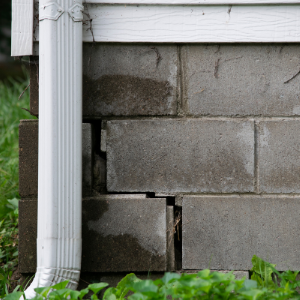
When buying a storm-damaged house in Illinois, buyers frequently have various worries that can sway their decision. The level of structural damage is a significant concern, as large storms can cause problems with roofs, foundations, and walls.
Potential buyers are particularly concerned about water damage, which can lead to mold growth and expensive repairs over time. The storm may have harmed electrical systems and plumbing, prompting concerns about safety risks or additional investment required for renovations.
Buyers may inquire about the property’s insurance coverage and whether claims have been filed or payouts paid. Furthermore, the prospect of future storms in Illinois may make purchasers hesitant to invest in a home with previous weaknesses.
Understanding these concerns can help sellers resolve them ahead of time, increasing the desirability of storm-damaged houses to potential buyers.
Financing Options for Buyers of Damaged Properties
When selling a storm-damaged house in Illinois, it is critical to understand the financing alternatives available to prospective purchasers. Because of the property’s state, buyers frequently struggle to obtain standard loans, necessitating alternative financing.
An FHA 203(k) loan is a popular option since it allows buyers to finance both the purchase and renovation costs of a damaged house with a single mortgage. This government-backed loan benefits houses that require extensive repairs, as it covers renovations that improve safety, livability, and energy efficiency.
Another potential alternative is a Fannie Mae HomeStyle Renovation loan, which provides flexibility for various modifications while maintaining low interest rates. Buyers may also consider private lenders or hard money loans, which can provide faster access to funds but typically come with higher interest rates.
Understanding these choices broadens the pool of possible buyers and allows for more efficient transactions in the Illinois real estate market for storm-damaged homes.
Negotiation Tips for Selling Under Adverse Conditions
Selling a storm-damaged house in Illinois requires strong negotiation skills. Research the local real estate market and develop an honest price that reflects the property’s value and condition while remaining competitive.
To bolster buyer confidence, be open about the degree of storm damage, offer repair estimates, and encourage complete transparency about the restoration. Confirm any repairs or renovations already done on the house to reassure buyers.
You may also consider incentivizing the sale with purchase sweeteners like closing costs or repair credits. Price isn’t everything; adopt a flexible approach concerning amendable dates for closing, contingencies, or other terms to make your offer more attractive.
Strategies and insights explicitly tailored to selling properties damaged by storms can be obtained from real estate professionals familiar with this niche.
The Role of Inspections in the Sale of Damaged Homes
In Illinois, inspections are essential when selling a home damaged by storms. Due to harsh weather conditions, homes may suffer from undiscovered damage, including serious problems such as structural damage, leaky roofs, and faulty electrical systems.
By uncovering these problems, sellers can adjust their repair work or change the pricing model to accurately align with the home’s condition. Offering inspection reports enhances trust and makes buyers more willing to purchase homes since inspections document repairs needed, potentially damaged areas left unchecked, or undisclosed issues internally.
Additionally, many financial institutions will not offer mortgages on homes known to be damaged until an inspection is done. Hiring an inspector with experience in damages caused by storms in Illinois ensures that all relevant liabilities are covered and appropriately captured, which makes negotiations exponentially easier and increases buyer confidence toward the transaction.
Working with Real Estate Professionals Specializing in Damaged Homes
Collaborating with real estate brokers who focus on damaged properties can prove highly beneficial when one aims to sell storm-damaged property in Illinois. They possess extensive knowledge of local markets and know how best to market and sell structurally or cosmetically hurricane-damaged properties.
They do not fail to appeal to vital attributes about the sale, which is essential for attracting patrons looking for properties that require renovations or investors interested in such opportunities. Also, these specialized brokers often have links with storm damage inspectors and contractors, enabling smooth transactions at realistic prices.
Experience in the field helps sellers handle the complexity of negotiating repairs or as-is sales and addresses disclosure obligations. Knowing that a storm-damaged property is optimally marketed, inviting value-seeking renovators ensures that the professional Illinois expert knows their business.
Future-proofing Your Property Against Further Storm Damage
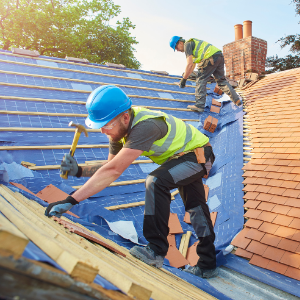
While protecting a property from further storm damage, selling an Illinois-sited home requires additional imperative attention, as attention suffers marked augmentation regarding value gain, which will potentially appeal to vacant lot buyers. Protection starts with averting hail and high winds, famous in Illinois for its merciless weather, providing roofing materials of unrivaled benevolence quality ever constructed.
Attachment of impact-resistant glass or storm shutters fuses windows to flying debris, rendering them inanimate. Preventing water accumulation around the house is critical as it poses a severe structural weakening risk; thus, reinforcing good drainage is vital to avoid gathering outside water prone to stagnation.
Flooding problems within need not be problematic if the basement contains a sump pump designed to relieve any flooding concern, abated during smooth operations. Clipping and positioning defective trees distant from edifices greatly improves the overserved section, while augmenting outer walls, shielding weatherproof siding, improves security without sacrificing looks.
Serving sellers, these efforts boost market value while evoking confidence in precision in the face of future storms. Further fortifying durability attains a magic counterproductive force, ready to attract buyers pouring interest coins abound.
Resources and Support for Illinois Homeowners Post-storm
Selling an Illinois property that has suffered severe damage in a storm is always challenging. Luckily, numerous resources and support systems are available to help the homeowners in this case.
Filing an insurance claim is vital, so calling an insurance company to discuss coverage associated with the storm damage would be crucial. Moreover, FEMA (Federal Emergency Management Agency) usually has programs for financially assisting affected areas, such as offering monetary aid and providing housing options.
Housing services and local councils may also know about grants or low-interest loans that can be used to recover from the storm at hand. Furthermore, distressed real estate actors might benefit from speaking to the owners, as they understand how to price and market the properties, appealing to investors looking for Illinois deals.
It helps concerned sellers of homes located in Illinois deal with these issues far more adeptly with advice and expert assistance. Collaborating with seasoned local crews certified in repairing storm damage guarantees the most urgent repairs are completed optimally, adding value to selling the house.
How Do I Sell My Storm Damaged House?
Selling a storm-damaged home in Illinois poses unique challenges; however, the right approach can help. To begin with, a professional evaluation of the storm damage will help determine what needs to be fixed and how much it will cost to make necessary repairs.
This appraisal aids in determining the selling price and clearly outlining it for potential buyers. Your chances of success will improve significantly if an expert with experience selling damaged homes is hired because they understand the local market and know how to generate interest.
Moreover, showcasing your storm-damaged home requires implementing effective marketing strategies. Keep highlighting existing features and emphasize the investment opportunity for purchasing a fixer-upper project. Offering repair credits or an open-ended closing date can lead to convincing some buyers.
Lastly, ensure any state-specific instructions or disclosures related to selling a damaged property in Illinois are followed. Adhering to these guidelines will facilitate smoother transactions. Selling a storm-damaged home comes with its fair share of complications, but following these steps can simplify the process while ensuring all essential bases are covered.
What Has to Be Disclosed When Selling a House in Illinois?
Selling a storm-damaged residential property in Illinois presents unique challenges. Understanding the legal requirements for disclosures can help mitigate some issues. Under Illinois law, all sellers must provide buyers with a Residential Real Property Disclosure Report.
Submitting this report requires sellers to disclose any storm-related material damage to the property, including, but not limited to, damage to the roof, leaks, cracks in the foundation, and flooding. Reporting those conditions accurately is essential from a legal standpoint, as well as maintaining confidence and honesty with the buyer.
Moreover, if repairs have been made due to storm damage, sellers need to disclose what exactly has been repaired and whether or not those repairs were carried out by certified personnel. To ensure compliance with regulations on disclosure documents, AR homeowners should seek real estate lawyers or professionals who specialize in such regulations under Illinois law, so that no pertinent details are missed. Yet, all information presented is complete and accurate.
Suppressing legal liabilities while facilitating faster sales can be done when sellers are open about previous storm damage.
How to Avoid Capital Gains Tax When Selling a House in Illinois?
Knowing how to minimize capital gains tax when selling an improperly maintained house located within a protective zone in IL borders could help your bottom line. A helpful method would be claiming an exemption like the primary residence rule given by the IRS.
Having lived in your Illinois home for two out of five years means you can sell the property without paying capital gains tax up to $250,000 if single and $500,000 if married filing jointly. It’s wise to consider a 1031 exchange reinvestment strategy where you buy a similar property within a set timeframe to delay capital gains taxes.
Ensure you maintain documentation for all the repairs and renovations performed on the storm-damaged house, as they can increase your property’s basis, reducing taxable gains. Consult an expert when selling Your Property. A storm damage property consulting tax professional will help ensure compliance with complex regional and detailed guidance for real estate regulations while optimally protecting gains and saving on your investment.
Can You Sell a Damaged Home?
You can legally sell homes destroyed by natural disasters like storms in Illinois. However, it is essential to understand the local real estate market and plan carefully to sell a storm-damaged home.
First, assess the extent of storm damage inflicted on your property. This decision will inform whether you choose to repair the home or sell it as is.
In Illinois, numerous buyers and investors focus on acquiring properties damaged by storms to fix them up. Showcasing what your residence can offer prospective purchasers can prove instrumental in capturing their interest.
It’s important to outline any issues and accurately depict the home’s condition to avoid potential legal disputes. Competing with other houses in your vicinity may also be a brilliant idea, as selling at a lower price than its actual worth could help make a quicker sale.
Having an experienced real estate professional work alongside you can assist with achieving a successful outcome for yourself and ensure that the sale occurs within a reasonable time frame. They possess knowledge and expertise regarding advertisement strategies for clients seeking homes that require renovations or those wanting to invest in Illinois’ housing market.
A Team Real Estate Solutions buys storm-damaged homes for cash statewide, including the city of Aurora, letting you skip repairs, cleanup, and complicated paperwork. Whether it’s roof leaks or flooding, they make the process fast and hassle-free so you can move on quickly. Contact us at (708) 608-0420 today to get your offer!
Helpful Illinois Blog Articles
- How Much Does It Cost to Sell a House in Illinois
- Can I Sell My House at Auction in Illinois
- How To Sell A House In Poor Condition In Illinois
- Guide To Short Selling Your Home To A Relative In Illinois
- Guide To Repairing Fire-Damaged Houses In Illinois
- Can My Ex-Partner Sell Our House Without Consent In Illinois
- Guide To Selling Your Home By Owner In Illinois
- Understanding Appraisal Required Repairs In Illinois Real Estate
- How Long Can You Leave Your Property Unoccupied
- How To Opt Out Of An HOA In Illinois
- Affordable Housing Options In Illinois
- Navigating Home Sales During Forbearance In Illinois
- Handling Delinquent HOA Payments in Illinois
- Can You Sell a Rental With Tenants in Illinois
- Understanding Closing Costs For Rental Property In Illinois
- Guide To Selling A House With Outstanding Property Taxes In Illinois
- How To Successfully Sell A Storm-Damaged House In Illinois
- Understanding Hospital Liens On Your Illinois Home
- Can You Sell a House with Asbestos in Illinois?
- Does a Seller Pay Closing Costs in Illinois?
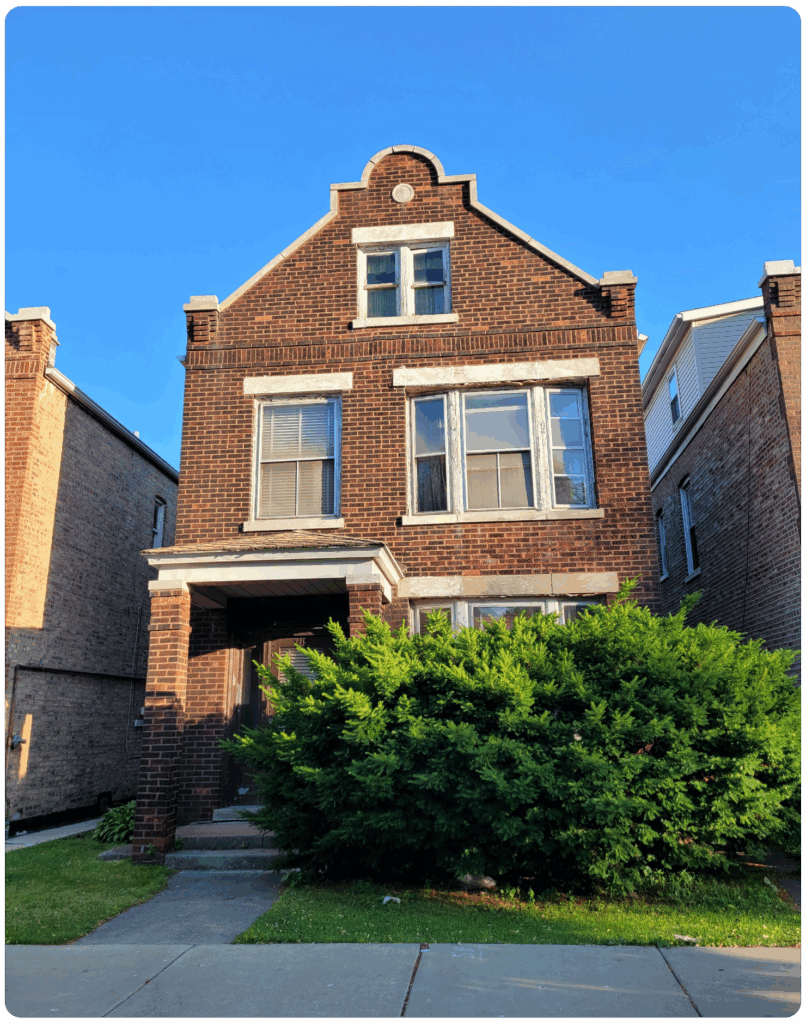
| INSURANCE COMPANY | INSURANCE PREMIUMS | NATURAL DISASTER | HOMEOWNERS INSURANCE | POLICIES | PROPERTY APPRAISAL |
| APPRAISAL | MORTGAGE LOAN | FORECLOSURE | FORECLOSURE SALE | EMOTIONAL DISTRESS | |
| PERCEPTION | HOMEBUYERS | MESSAGE | INSURANCE POLICIES | TORNADOES | TORNADO |
| RISK | BLOG | TERMS OF SERVICE | SMS | RETURN ON INVESTMENT (ROI) | RAINFALL |
| PRIVACY | MARYLAND | FREQUENCY | FLORIDA | FLOOD INSURANCE | EXTREME WEATHER |
| EARTHQUAKES | DEPRECIATION | COMPANY | THE COST OF | INSURANCE CLAIMS AND | NATURAL DISASTER AFFECT |
| OF COLUMBIAFLORIDAGEORGIAGUAMHAWAIIIDAHOILLINOISINDIANAIOWAKANSASKENTUCKYLOUISIANAMAINEMARYLANDMASSACHUSETTSMICHIGANMINNESOTAMISSISSIPPIMISSOURIMONTANANEBRASKANEVADANEW HAMPSHIRENEW | MARKET AFTER A | OFF THE MARKET | A STORMDAMAGED PROPERTY | THE MARKET AFTER | WITH YOUR INSURANCE |
| A CASH OFFER | DISASTER AFFECT PROPERTY | HOUSE WITH STORM | COST OF REPAIRS | AFFECT PROPERTY VALUE | BY A STORM |
| YOUR INSURANCE COMPANY | COLUMBIAFLORIDAGEORGIAGUAMHAWAIIIDAHOILLINOISINDIANAIOWAKANSASKENTUCKYLOUISIANAMAINEMARYLANDMASSACHUSETTSMICHIGANMINNESOTAMISSISSIPPIMISSOURIMONTANANEBRASKANEVADANEW HAMPSHIRENEW JERSEYNEW | SAMOAARIZONAARKANSASCALIFORNIACOLORADOCONNECTICUTDELAWAREDISTRICT OF COLUMBIAFLORIDAGEORGIAGUAMHAWAIIIDAHOILLINOISINDIANAIOWAKANSASKENTUCKYLOUISIANAMAINEMARYLANDMASSACHUSETTSMICHIGANMINNESOTAMISSISSIPPIMISSOURIMONTANANEBRASKANEVADANEW | A NATURAL DISASTER | BUYERS MIGHT BE | THE REPAIR COSTS |
| ON THE MARKET | DOES A NATURAL DISASTER | NAME EMAIL WEBSITE SAVE | OF COLUMBIAFLORIDAGEORGIAGUAMHAWAIIIDAHOILLINOISINDIANAIOWAKANSASKENTUCKYLOUISIANAMAINEMARYLANDMASSACHUSETTSMICHIGANMINNESOTAMISSISSIPPIMISSOURIMONTANANEBRASKANEVADANEW HAMPSHIRENEW JERSEYNEW | COLUMBIAFLORIDAGEORGIAGUAMHAWAIIIDAHOILLINOISINDIANAIOWAKANSASKENTUCKYLOUISIANAMAINEMARYLANDMASSACHUSETTSMICHIGANMINNESOTAMISSISSIPPIMISSOURIMONTANANEBRASKANEVADANEW HAMPSHIRENEW JERSEYNEW MEXICONEW | THE COST OF REPAIRS |
| SAMOAARIZONAARKANSASCALIFORNIACOLORADOCONNECTICUTDELAWAREDISTRICT OF COLUMBIAFLORIDAGEORGIAGUAMHAWAIIIDAHOILLINOISINDIANAIOWAKANSASKENTUCKYLOUISIANAMAINEMARYLANDMASSACHUSETTSMICHIGANMINNESOTAMISSISSIPPIMISSOURIMONTANANEBRASKANEVADANEW HAMPSHIRENEW | MY NAME EMAIL AND | HOUSE WITH STORM DAMAGE | OF A NATURAL DISASTER | CONTACT YOUR INSURANCE COMPANY | NAME EMAIL AND WEBSITE |
| SAVE MY NAME EMAIL | A NATURAL DISASTER AFFECT | OFF THE MARKET AFTER | DISASTER AFFECT PROPERTY VALUE | COMMENT NAME EMAIL WEBSITE | THE MARKET AFTER A |
| EMAIL ADDRESS WILL NOT | MARKED COMMENT NAME EMAIL | A HOUSE WITH STORM | HIT BY A STORM | PRONE TO NATURAL DISASTERS | HOME OFF THE MARKET |
| NATURAL DISASTER AFFECT PROPERTY | EMAIL WEBSITE SAVE MY | MARKET AFTER A NATURAL | CANCEL REPLYYOUR EMAIL ADDRESS | EMAIL AND WEBSITE IN | REPLY CANCEL REPLYYOUR EMAIL |
| A NATURAL DISASTER CAN | AFTER A NATURAL DISASTER | REPLYYOUR EMAIL ADDRESS WILL | ALABAMAALASKAAMERICAN SAMOAARIZONAARKANSASCALIFORNIACOLORADOCONNECTICUTDELAWAREDISTRICT OF COLUMBIAFLORIDAGEORGIAGUAMHAWAIIIDAHOILLINOISINDIANAIOWAKANSASKENTUCKYLOUISIANAMAINEMARYLANDMASSACHUSETTSMICHIGANMINNESOTAMISSISSIPPIMISSOURIMONTANANEBRASKANEVADANEW | WITH YOUR INSURANCE COMPANY | HOUSE ON THE MARKET |
